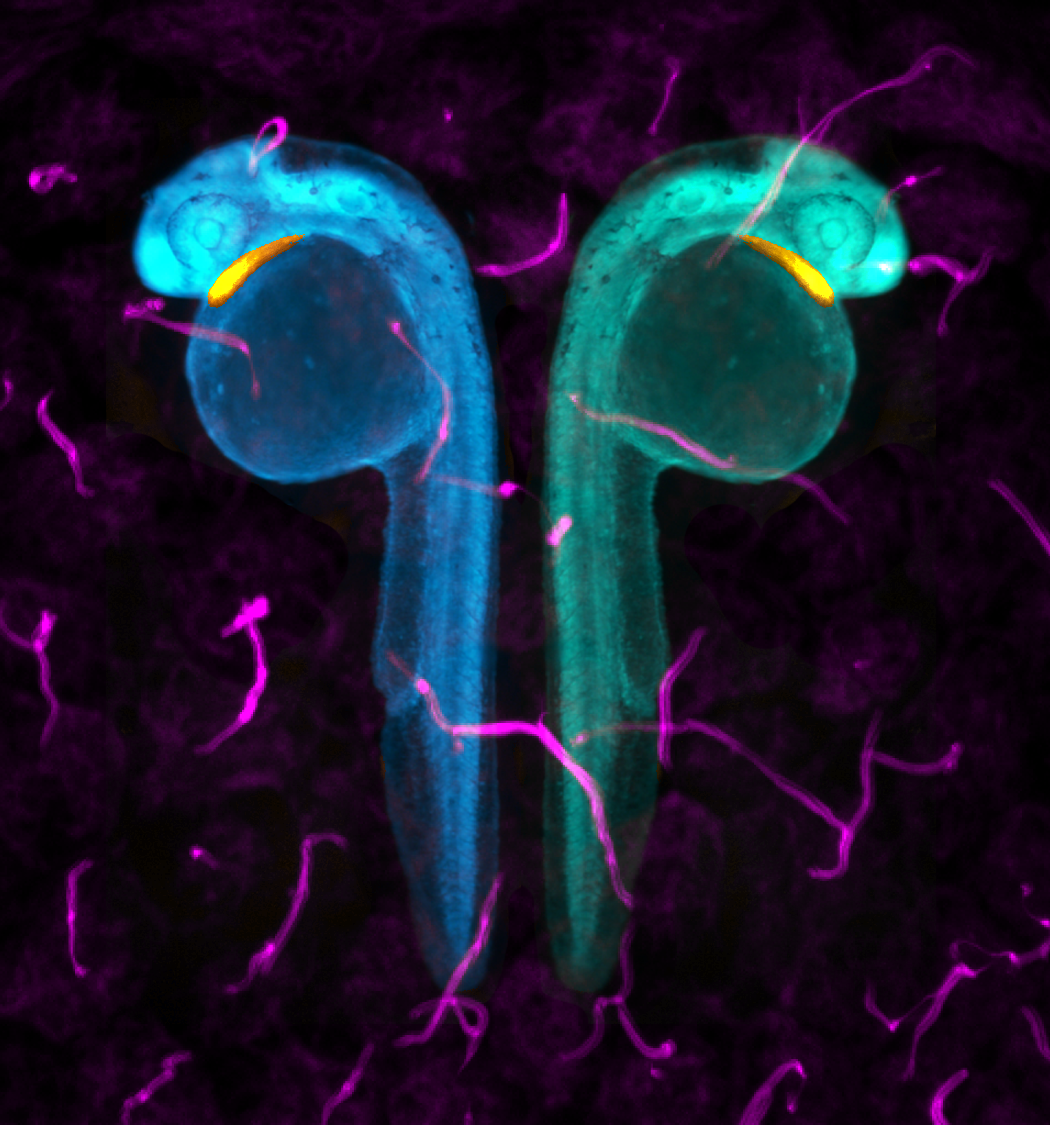We are a multidisciplinary group of biologists, biophysicists and microscopists who aim to understand how fluid flows and biophysical forces shape the developing heart, and how these mechanisms underlie cardiac disease pathogenesis when gone awry. Specifically, we seek to illuminate how the cilium, a hair-like structure found on most cells in the human body, acts as an “antenna” to sense and translate extracellular signals into molecular processes that sculpt the early heart.
The current goals of the Yuan laboratory are to address: (1) how the cilium, a cell-surface organelle, modulates cardiac left-right axis development, and (2) how ciliary defects contribute to the pathogenesis of congenital heart disease, heterotaxy syndrome and other ciliopathic disorders.
We specialize in fundamental research on developmental and cell biology using genetic, biophysical, and microscopy-based approaches in zebrafish, cells and mice.
Founded in 2018, our laboratory is located in the Cardiovascular Research Center at Massachusetts General Hospital and Harvard Medical School.

